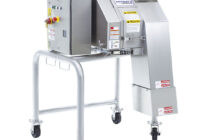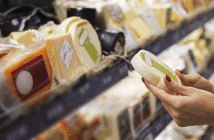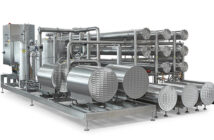
Alarm bells about a perceived threat to New Zealand’s billion dollar pork industry are ringing loudly on both sides of the Tasman.
Politicians and pig-breeders are united in blaming the danger on what they see as a major mistake by MAF.
Their view is endorsed by globally-respected veterinarian Dr Eric Neumann – senior lecturer in swine health at Massey University.The new measures advocated by MAF, to comply with international trade agreements, would include allowing imports of fresh uncooked pork as long as they were restricted to cuts weighing no more than three kg and the lymph nodes had been removed.
“I suspect the trade officials have leverage over the bio-security officials at a time when we should be doing the reverse with higher degrees of bio-protection,” says MP Damien O’Connor. Pictures courtesy of NZ Pork
The controversy centres on the killer virus PRRS – Porcine Reproductive and Respiratory Syndrome – which, like HIV in humans, suppresses the immune system. It is commonly called Pig Aids.
New Zealand and Australia are among the few countries free of PRRS but a MAF proposal would reduce bio-security regulations on imports from those infected countries.
NZ Pork, the industry’s national board, is vigorously opposed to the proposed change, fearing that PRRS could bring devastating consequences here, and has taken the issue to the High Court.
The board has the backing of Dr Neumann who has extensively researched PRRS. He told FOODtechnology that “the relaxation being sought by MAF would bring an unacceptably high risk. And once established in a country, PRRS is extremely difficult to eradicate.”
It can be transmitted by pigs being fed scraps containing infected pork – as could happen in ‘backyard’ breeding conditions – or by a person handling such pork before feeding pigs. It can also be transmitted by air.
It does not affect humans but can cause late-term abortions of piglets. Up to 70 percent of those infected which do survive until birth, die before being weaned – having been rendered susceptible to pneumonia or other sicknesses. A further 12 percent or more die after weaning.
PRRS is estimated to cost the American pork industry US$1 billion a year and is also rife in Canada, Mexico and countries in the European Union.
“Pork imported from countries with PRRS must currently undergo treatment to de-activate the disease,” says Sam McIvor chief executive of the industry’s national board New Zealand Pork.
“Under the new proposals this requirement would be eliminated.”
The new measures advocated by MAF, to comply with international trade agreements, would include allowing imports of fresh uncooked pork as long as they were restricted to cuts weighing no more than three kg and the lymph nodes had been removed.
At a High Court hearing in August, NZ Pork sought to block the MAF move and, at time of writing, a ruling is being awaited.
FOODtechnology understands that a key pillar of MAF’s argument was that the current measures in import health standards are sufficient to manage the risk of PRRS.
MAF reportedly told the court that the decision to issue import health standards for the importation of uncooked pork from countries with PRRS was made after an extensive review of the available science, consultation with stakeholders, and an independent review panel.
Dr Neumann reiterates that he considers the risk is far higher than MAF has indicated. To him it is ‘unacceptably high’.
That view is shared by Damien O’Connor, a South Island Labour MP with a strong farming background, who is one of a group of politicians opposing the MAF proposal.
“Clearly this is a stupid mistake and it is hard to understand what is driving it,” he told FOODtechnology.
“I suspect the trade officials have leverage over the bio-security officials at a time when we should be doing the reverse with higher degrees of bio-protection.
“I can put it on record that we in government would certainly review this decision. “The varroa mite infusion has taught us a very blunt lesson and the costs of any bio-security breach can be astronomical.
The science is somewhat contradictory and if in doubt keep it out.
“CER also places on us a responsibility for Australia.. If we continue to have open access across the Tasman we need to consider the dangers that this might bring to Aussie producers as well as our own.”
The same point has been made vigorously by politicians in Australia.
Senator Bill Hefferman has stated that “if New Zealand wishes to lower their standards and import disease-carrying fresh pork from declared PRRS countries, this could potentially have a devastating impact on Australia’s pig producers and Australian consumers.”
Senator John Williams, a former pig famer, commented: “If New Zealand allows the importation of raw pig meat, then the Australian government should strengthen its resolve and not buckle to international pressure.”
NZ Pork denies an allegation that its producers are indulging in “good old protectionism” by resisting the proposed bio-security changes.
“Given the impact a disease like PRRS could have on our national pig herd, New Zealand could very easily not have a viable domestic industry for importers to compete with. We seek only that effective bio-security safeguards remain in place for competition to continue,” a statement from the national board declared.




























































































